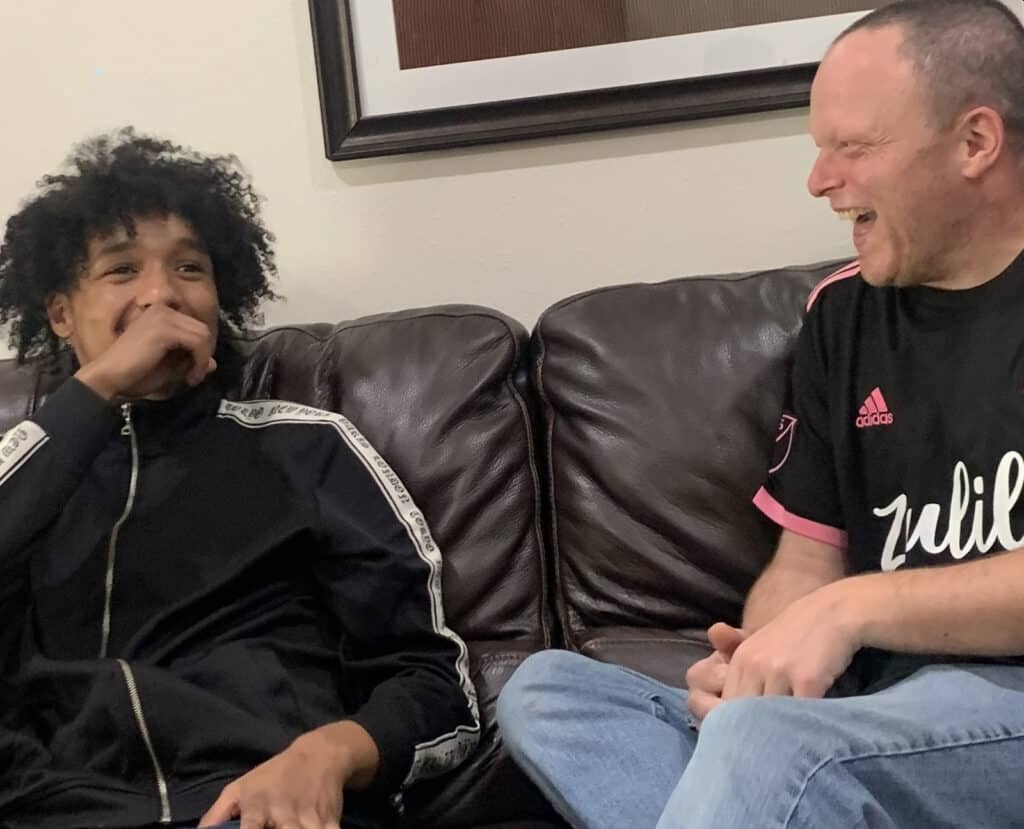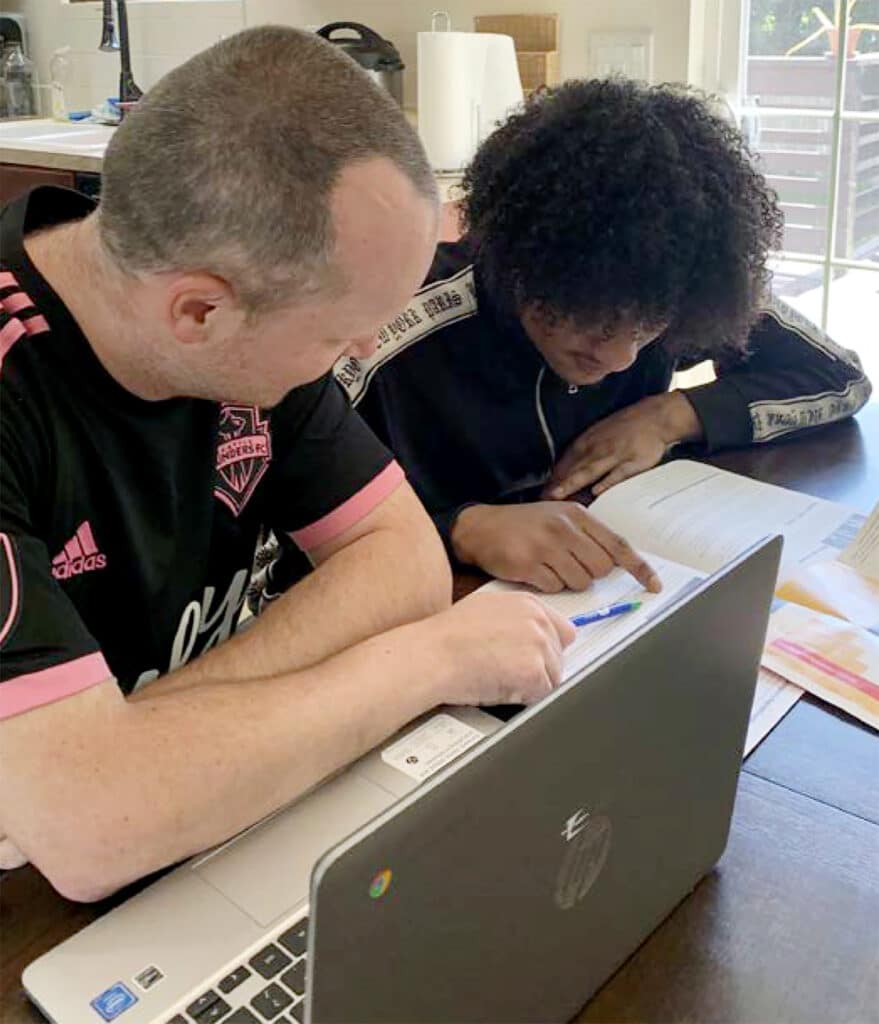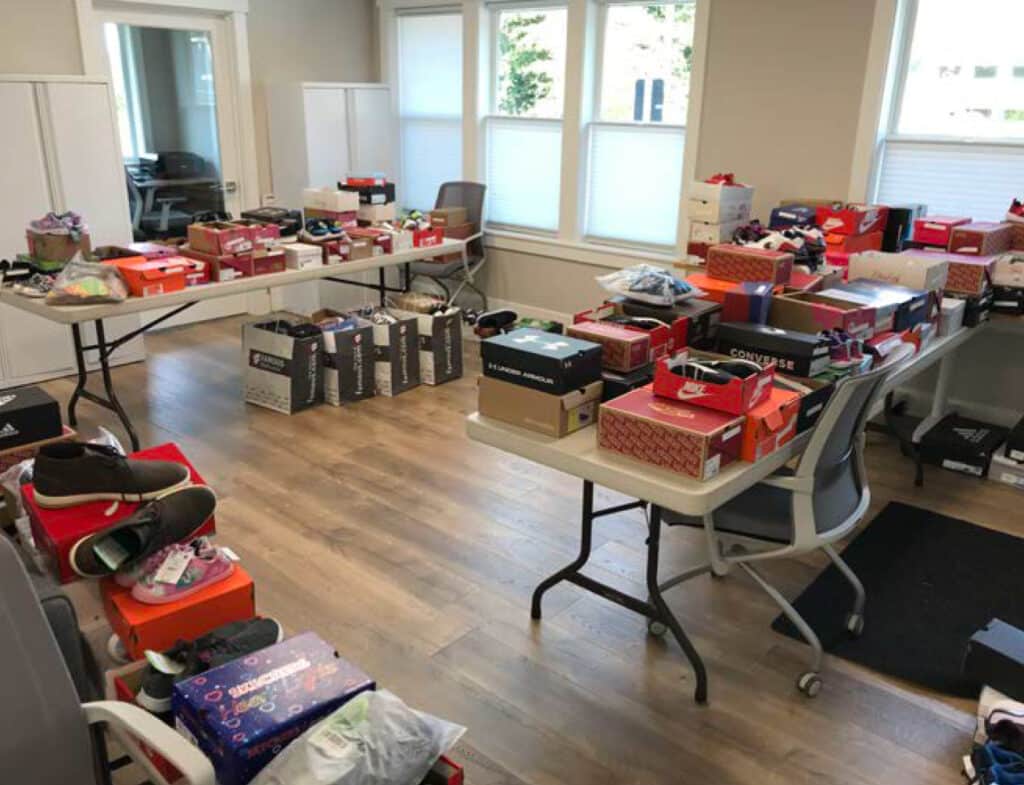Community
Harbor Hope Center helps homeless youths help themselves
For most people, standing in line to get a driver’s license or open a bank account is a chore.
Community Sponsor
Community stories are made possible in part by Peninsula Light Co, a proud sponsor of Gig Harbor Now.
For Liam McEvilly, it’s a joy.
McEvilly is the case manager for boys at Harbor Hope Center, a Gig Harbor-based nonprofit that supports young people experiencing homelessness. Key to fulfilling that mission is helping young people learn life skills they never picked up while struggling through insecure housing situations.
Like getting a license or opening a bank account.
“That’s why I come to work every day. Those moments,” said McEvilly, describing the happiness he sees in the faces of people accomplishing something that previously seemed out of reach.

Staff members establish a relationship with residents at the center’s two care homes.
Harbor Hope Center’s history
Harbor Hope Center is about three years old. It operates a number of programs to aid young people, perhaps most notably care homes for people ages 18 to 21 — one home each for young men and women. Both homes are located on the Key Peninsula, not far from the Purdy Bridge.
Harbor Hope also operates a host home program, in which families volunteer to take in minors who are experiencing homelessness. The minors, with the approval of a parent or guardian, live with the host families.
Its big annual fundraiser, Hands of Hope, is Oct. 29 at Ocean5 in Gig Harbor. Its website describes the event as “a fun evening benefiting Harbor Hope Center’s programs for homeless and at-risk students in Gig Harbor and the Key Peninsula.”
Table sponsorships cost $1,200 for a table of eight or $150 per person. For information or tickets, click here, email [email protected] or call 1-844-841-1954.
According to executive director Daniel Johnson, the nonprofit has its roots in a Gig Harbor book club. The club read “When Helping Hurts: Alleviating Poverty Without Hurting the Poor,” a 2009 non-fiction book by Steve Corbett and Brian Fikkert. The book inspired members of the club to do something about people struggling in their own community.
The idea, as Johnson puts it: “Not just providing beds, but life skills.”

Providing life skills to young people who have experienced homelessness is a key strategy for Harbor Hope Center.
Teaching life skills
Johnson said the organization quickly learned that many of its clients never learned basics like how to shop for groceries, prepare a resume, cook a meal or apply for a job.
Most people acquire those skills from family members as teenagers. Many of the young people Harbor Hope Center works with weren’t so fortunate.
“We saw that things we sometimes take for granted, especially in a community like this, were not present in these people,” Johnson said.
Cherish Mitchell, Harbor Hope’s case manager for girls, said her residents commonly need help applying for state-issued IDs and learning job interviewing skills. Another common need is learning how to “stay out of a toxic relationship,” she said.
“Coping mechanisms are my biggest things,” Mitchell said. “A lot of people come in with trauma.”
Care home residents are screened and monitored for signs of drug abuse. Harbor Hope refers those experiencing addiction issues to treatment programs. “We’re just not equipped to help a student who has a drug addiction,” Johnson said.

A resident and a staff member have fun outside Harbor Hope Center’s home for boys on the Key Peninsula.
What’s expected of residents
Harbor Hope conducts background checks on all clients and volunteers. Young people who have committed crimes against persons are screened out.
Residents must make some commitments. They have to look for jobs, with help from the center (Johnson said the center actively works with employers to connect them with residents). They help out around the house, including cleaning up, preparing meals and doing basic home maintenance. And they must, as McEvilly put it, “participate in their own future.”
The expected stay is 90 days, though Mitchell said she’s had clients stay longer. The outcomes after those 90 days can be amazing.
Harbor Hope Center outcomes
McEvilly points to one Harbor Hope Center care home alumni who is now in his second year at Grand Canyon University in Arizona. He said other common outcomes include reunification with an estranged family, joining the military, or simply finding a steady job and getting an apartment.

One of Harbor Hope Center’s success stories involves Chris, a resident whose family experienced generational homelessness. With the center’s help, she managed to graduate from high school and matriculate to Tacoma Community College-Gig Harbor after finding housing.
Johnson highlights a former Harbor Hope resident who ended up graduating from high school with honors and is now attending Tacoma Community College’s Gig Harbor campus to study pre-nursing.
Mitchell, interviewed earlier in October, said a former resident who expressed interest in her work recently started working at Harbor Hope Center as a full-time staff member.
“It has been wonderful,” said Mitchell, who has worked at Harbor Hope for about nine months. “Just making my heart extremely whole when it comes to the success of the residents who come in and out of the care home.”
How to help
Some ways to help Harbor Hope Center:
Be a host family: Harbor Hope Center operates two care homes for 18- to 21-year-olds. It also facilitates host families to help minors. Executive director Daniel Johnson compared host families’ roles to hosting an exchange student, except that instead of hosting someone from abroad they are helping a young person in their own community. It’s a big commitment, involving background checks, monitoring and training.
Be a mentor: Harbor Hope Center pairs clients with mentors from the community. Mentors act in a big brother/big sister role. Case manager Liam McEvilly described mentors’ role as to “be a cheerleader for these young folks.”

Supplies donated to help Harbor Hope Center clients.
Donations: Like most nonprofits, Harbor Hope Center is always accepting donations. Especially needed are non-food items like toiletries, cleaning products and toilet paper.
Hiring: Harbor Hope Center helps its clients connect with employers. The goal is to help people get jobs during their stay at the care homes. Employers willing to hire a client can reach out to Harbor Hope Center.
Hands of Hope: The Harbor Hope Center fundraiser is Oct. 29 at Ocean5 in Gig Harbor. Table sponsorships cost $1,200 for a table of eight or $150 per person.
Contact Harbor Hope Center by clicking here, emailing [email protected] or calling 1-844-841-1954.

